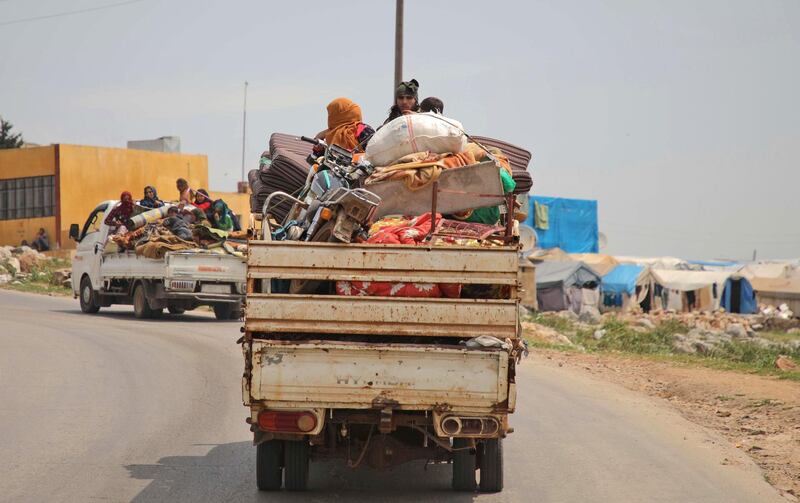As officials from seven countries meet in Geneva to determine the fate of war-torn Syria, three million civilians are living in fear for their lives. Russian and Syrian planes have been pounding Idlib with barrel bombs and airstrikes in a deeply troubling escalation of violence, the heaviest assault since rebel-held northwestern Syria was declared a demilitarised zone in September last year. It says much about the toll the eight-year war has taken – a war in which half a million people have died and more than 11 million have been displaced – that news of residential neighbourhoods being bombarded by shelling barely raises a flicker. This is simply the latest incarnation of a cycle of violence which has become a way of life for Syrians, who could be seen in Idlib frantically packing up what few possessions they have left and preparing to be displaced once again.
But the renewed attacks deserve the condemnation of the international community. For months, it seems Bashar Al Assad has been champing at the bit to launch an all-out assault on the last rebel stronghold in Syria, having regained control of 70 per cent of his country. It was only pleas from Turkey, which backs the National Liberation Front in the province, and the buffer zone deal Ankara struck with Moscow, that maintained a fragile truce. Now it seems the Assad regime is prepared to wait no longer and, backed by Russian warplanes, has bombed schools, hospitals and residential areas.
The brutal offensive aims to target the final frontier of rebels in the enclave, which has been run by the Al Qaeda-affiliated Hayat Tahrir Al Sham since January. It was, perhaps, inevitable that Idlib would be in the regime's crosshairs after its forces repeatedly besieged other rebel territories such as Eastern Ghouta over the course of the war, then offered to evacuate its inhabitants to Idlib. As far as the regime is concerned, Idlib is a holding pen for all its enemies. But among the numerous rebel factions that have failed to disarm – a minority of the population – are millions of innocent civilians, including one million children, who were herded from one ticking timebomb into another. Those under attack also include citizens of Idlib, who are in danger simply because of geography.
Since February, more than 200 civilians have been killed and nearly 140,000 people have been internally displaced in Idlib and Hama. As the UN has warned, an escalation could spell a humanitarian disaster for Syrians, who have already been through enough. Bombarding civilian targets achieves nothing except more misery for those who have already lost everything. If the regime is intent on disarming rebel fighters, it should tackle them directly rather than collectively punishing an entire region. Enforcing the demilitarisation policy rather than targeting a civilian populace is a more humane option. If Mr Al Assad is hoping for help at the UN talks in rebuilding Syria, he must show he is capable of negotiated solutions rather than brute violence.





